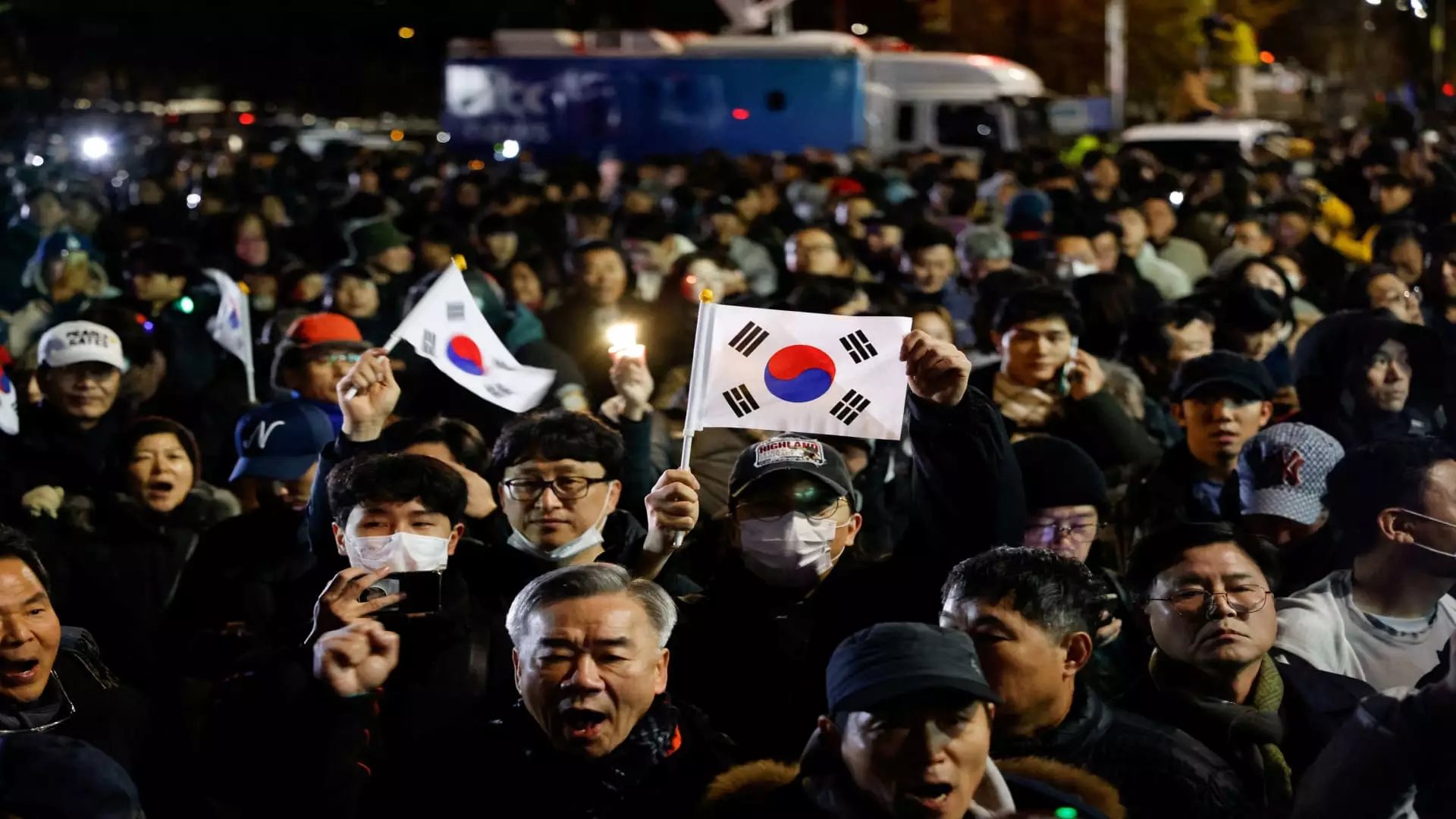On Wednesday, South Korean financial markets experienced significant declines, reflecting investor apprehension stemming from recent political turmoil. The Kospi index plunged by 1.8%, while the Kosdaq faced an even steeper drop of 2.4%. This downturn was orchestrated by a series of events involving President Yoon Suk Yeol, who controversially imposed and quickly retracted a martial law decree. Such drastic political maneuvering has left investors questioning the stability and leadership within the country, prompting calls for Yoon’s resignation from both opposition parties and protesters alike.
Adding to the prevailing atmosphere of uncertainty, lawmakers from opposition factions are reportedly preparing to introduce an impeachment bill against President Yoon. If successful, this legislation could be voted on within 72 hours, further heightening tensions in an already uneasy political landscape. Reports indicate that Yoon’s chief of staff and other senior aides are contemplating resignation en masse, an escalation that may signal deep dissatisfaction within the president’s inner circle and reflect the growing pressure for governmental change.
In response to alarm over financial volatility, the Bank of Korea convened an emergency board meeting to bolster short-term liquidity and enhance market stability. Officials announced their readiness to implement measures to shore up the foreign exchange market, which has faced mounting strains. The bank also signaled its willingness to provide special loans aimed at injecting vital funds into the economy. In a bid to calm market sentiment, South Korea’s financial regulators are poised to deploy a 10 trillion won ($7.07 billion) stabilization fund for the stock market, showcasing a determined effort to mitigate investor fears.
Regional Market Sentiment
The turbulence in South Korea has reverberated across the Asia-Pacific region. Japan’s Nikkei 225 and Topix indexes reflected investors’ concerns by declining by 0.4% each. Conversely, Hong Kong’s Hang Seng index edged up by 0.1%, while mainland China’s CSI 300 slipped by 0.2%. Australian markets likewise felt the pressure; the S&P/ASX 200 fell by 0.38% as economic growth figures for the third quarter fell short of expectations, exacerbated by ongoing high-interest rates and persistent inflation.
The ramifications of South Korea’s political upheaval also extended to U.S. markets, where the iShares MSCI South Korea ETF (EWY) experienced wild fluctuations, initially plummeting by 7% before recovering slightly to end the day down 1.6%. Despite the storm brewing in South Korea, U.S. markets showed signs of resilience, with the S&P 500 inching up by 0.05% and the Nasdaq Composite gaining 0.4%. Only the Dow Jones Industrial Average felt the brunt of negative momentum, declining by nearly 0.2%.
The unfolding crisis in South Korea raises critical questions about the nation’s political direction and its potential impact on the economy. The intersection of political instability and market performance demonstrates the fragility of investor confidence, suggesting that ongoing developments will need close monitoring as economic players navigate an increasingly complex landscape. With potential impeachment proceedings and efforts to stabilize the market underway, investors will be keenly watching for any signs of resolution or further dissent.



Leave a Reply